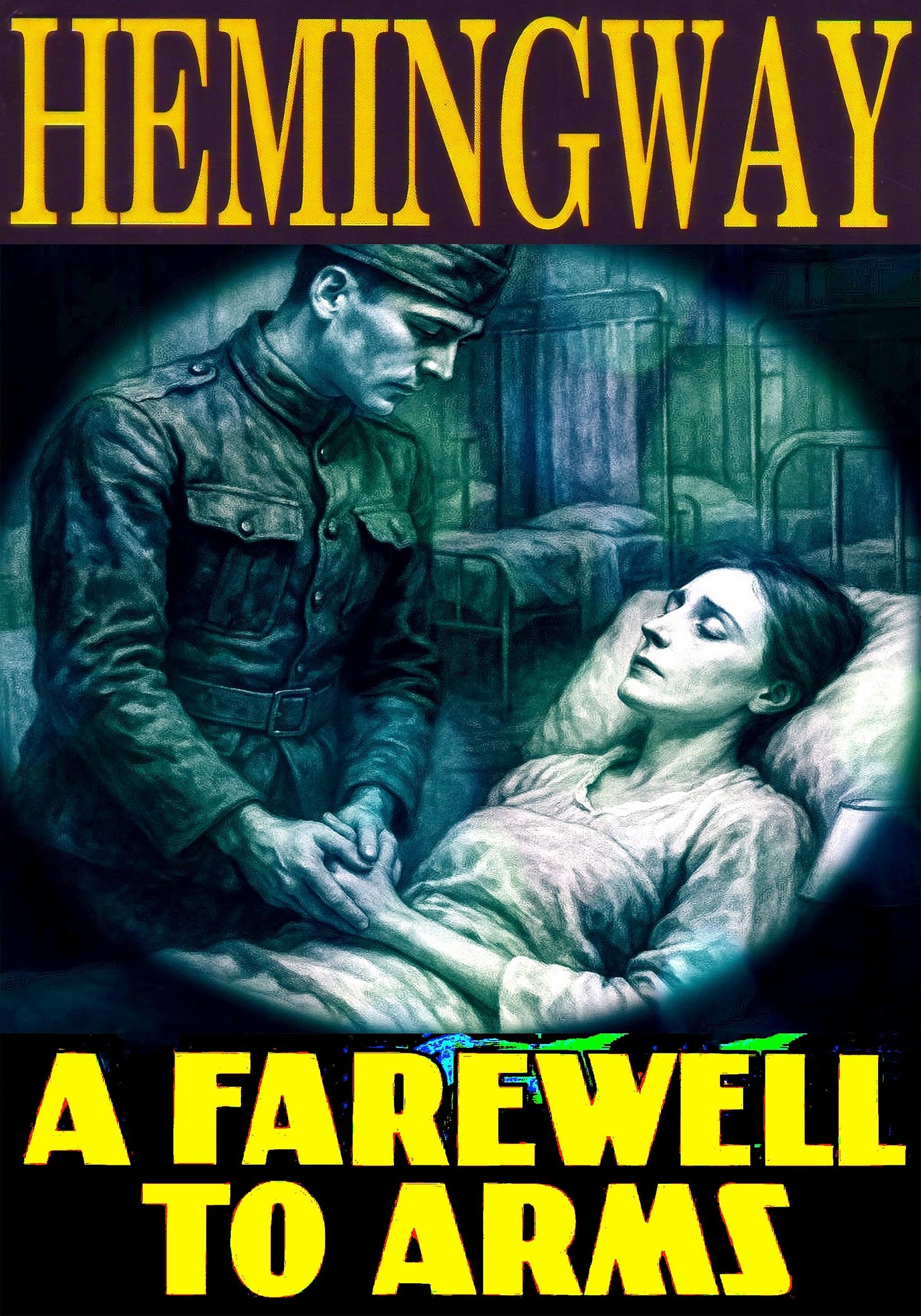A Farewell to Arms
(Ernest Hemingway 1929)
And now for something completely different: I read this novel back in High School (Bayside High, Queens, NY in the 1950’s) on the advice of Mr. Neiman, my English teacher. It was about some guy who gets sucked into WWI, literally not realizing what he was getting himself into. After having suffered through the (required) Return of the Native, this thing looked actually r.e.a.d.a.b.l.e. The writing was Clear. Concise. Punchy. Direct. And to my pimply teenage astonishment, I began liking it as I turned the pages.
As the years went by, Hemingway’s story stuck with me, and when I learned that it had recently gone into the public domain, I decided to publish a new version myself, because the world was begging for the one zillionth (and 27) additional version.
Actually, I did it so that I had a reason to revisit the manuscript line by line, and see if my opinion of it has changed over the years. It hasn’t. It’s not everybody’s cup of tea surely. But it still has a great deal to teach us about people (if you haven’t given up yet), and of course, war (what’s it good for, Jerry)?
Here’s the sales text I wrote for the St. George Press edition:
A Farewell to Arms
By Ernest Hemingway
Love. War. Fate. Loss. A timeless masterpiece from one of America’s greatest literary voices.
Set against the harrowing backdrop of World War I, A Farewell to Arms tells the unforgettable story of Lieutenant Frederic Henry, an American ambulance driver in the Italian army, and Catherine Barkley, a British nurse. Their passionate, forbidden love unfolds in the shadow of chaos and destruction—a brief, luminous shelter from the brutality surrounding them.
As the war intensifies and the lines between heroism and futility blur, Hemingway explores the profound cost of love and the haunting fragility of human connection.
With his signature spare prose and unsentimental clarity, he delivers a novel that is both deeply personal and universally resonant.
Widely regarded as Hemingway’s greatest novel, A Farewell to Arms remains one of the definitive literary portraits of love threatened by history. Its final pages—still among the most devastating endings in modern fiction—linger long after the book is closed.
Jes sayin’ …
/PD


